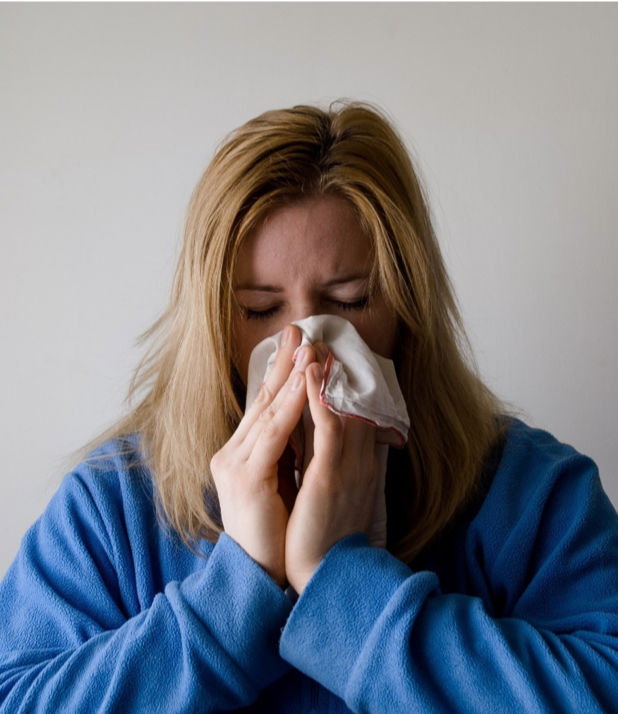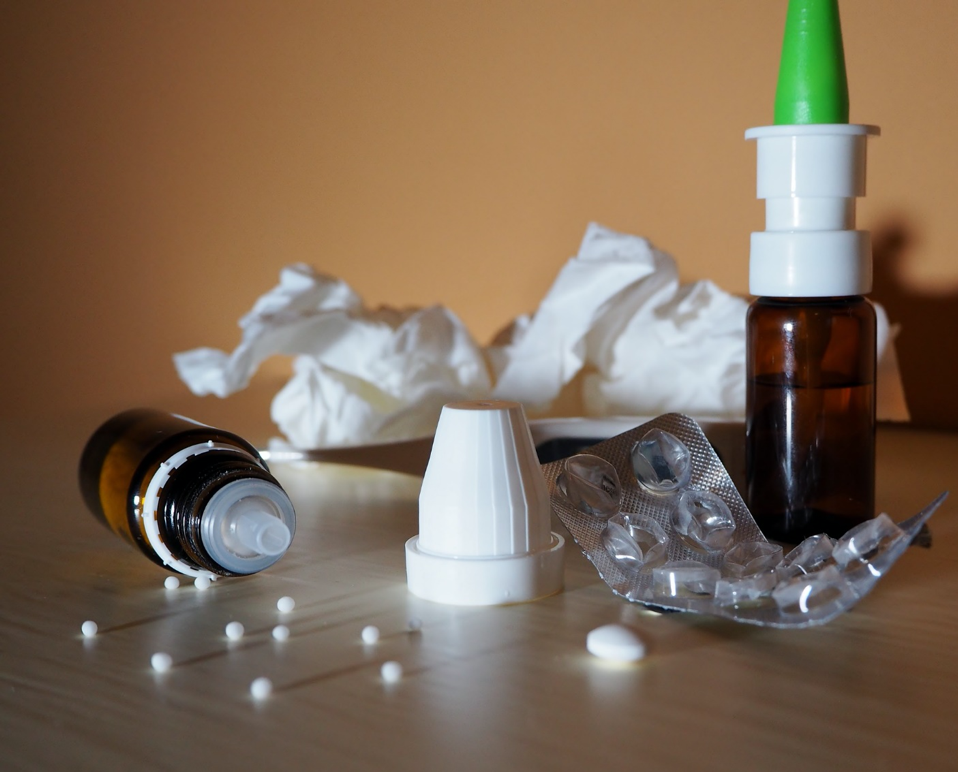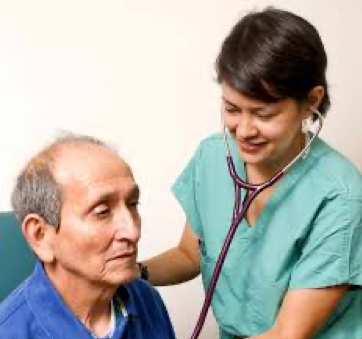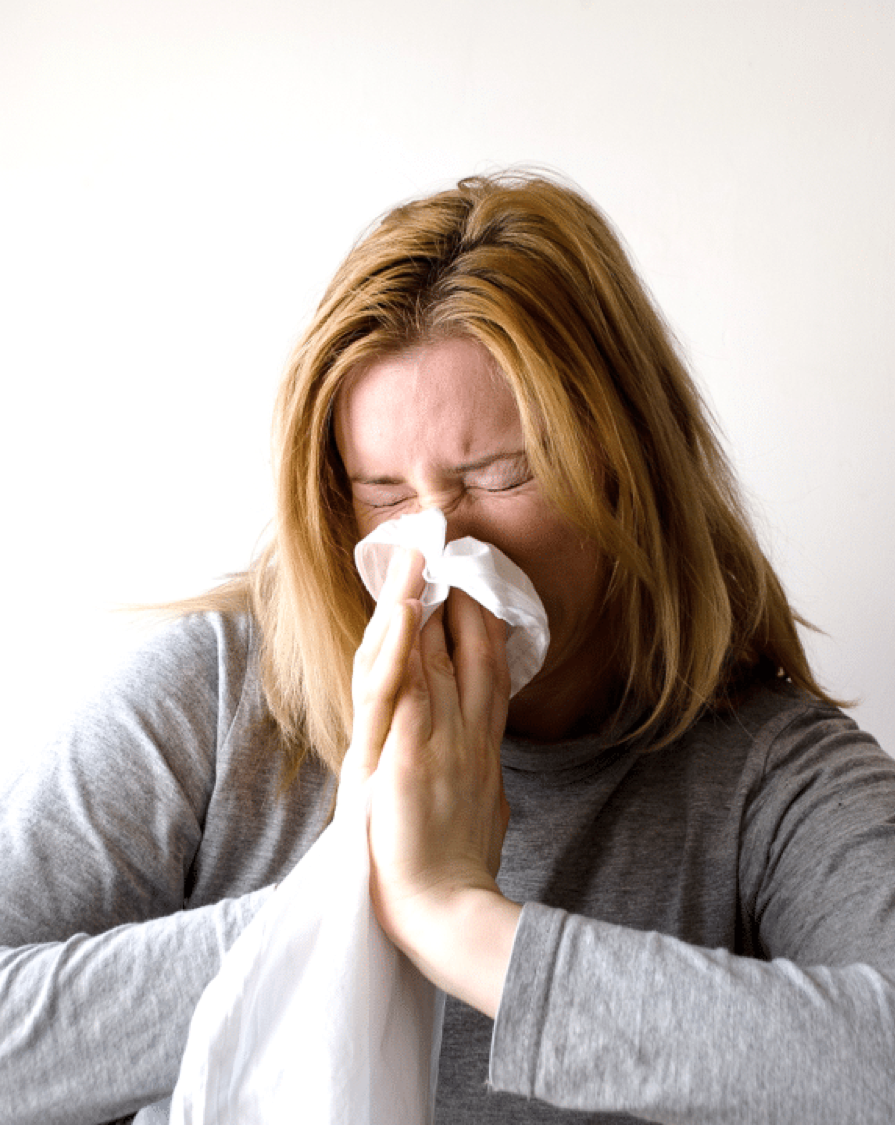Monthly Archives: May 2020
Do you Have Nasal Polyps?
Have you ever felt like you can no longer breathe, and your nose is just going to explode? Well, that feeling is due to the teardrop-sized growth in our nasal passages known as Nasal Polyps. Nasal Polyps are a type of growth that usually occur in the lining of our sinuses or nasal. They often lead the way to different allergies, sensitivity, asthma and immune disorders. If you want to learn more about these nasal growths and the different ways to treat them, then you should definitely continue reading this article.

What Leads to Nasal Polyps?
There is no one single cause of Nasal Polyps, the real cause is unknown, but certain factors can lead to you experiencing nasal polyps. As we already know, Nasal polypus occurs in our nasal passages.
A few of the main factors that lead to nasal polyps are:
· Allergic Reactions
Many of us experience different allergic reactions that could be due to a certain food or the environment. Most of these allergies lead to excessive sneezing, itching, and irritation in the nose that leads to inflammation. The symptoms of allergies can be a reason for Nasal polypus but this cause is still a controversial debate.
· Infections
Infections such as sinus, acute infections, chronic infections, asthma and cystic fibrosis may also lead to nasal polyps as these infections cause excessive irritation and dryness in the nose that usually triggers their growth.
· Age
People who are often above 40 are prone to develop cystic fibrosis, which may lead to the growth of polypus. Many researchers have concluded that men are more prone than women to develop Nasal polyps.
· Genetic
It’s likely that nasal polypus is hereditary. Scientists link nasal polypus to genetics because of the way genes cause the mucosa to react to inflammation.
Symptoms of Nasal Polyps
Mentioned below are the symptoms that occur during Nasal polyps:
- Constant Sneezing
- Runny nose
- Blocked nose
- Unable to sense any smell
- Postnasal drip
- Irritation in eyes
- An ache in facial features
- Different infections
- Lack of taste buds
- Nosebleeds
- Snoring
- Upper teeth pain
The most common symptoms of Polyps is a runny/blocked nose and sneezing. However, other symptoms are also equally experienced depending on person to person.
Nasal polyps also causes your asthma to aggregate and worsen your sinus, which may sometimes lead to a change in the structure of your nose due to the constant rubbing and itching.
Treatments for Nasal Polyps
Medications
Different kinds of medication can relieve the inflammation built in your nose and help with your runny nose. One of the best medicines for nasal polyps is a nasal steroid. They work by instantly relieving any uneasiness or irritation in the nose. There are different types of nasal steroids that you can use.
If these nasal sprays don’t work due to excessive symptoms, you can take an injectable or oral steroid.

You can also take antibiotics to treat your sinus and inflammation.
Surgery
If you feel like your symptoms are getting worse despite taking medication, you should consider going to the doctor. The doctor may carry out a surgical procedure known as a Polypectomy. The doctor will only consider surgery depending on the size of your nasal polyps. The surgery involves removing the soft tissues like the mucosa with a microbender or a small suction device.
If your polyps are too large, the doctor will carry out a different procedure called endoscopic sinus, which involves using a thin endoscope with a few tools and a tiny camera. The procedure involves enlarging the opening of your sinus cavities and then removing the polypus.
Tips to Prevent Polyps
Mentioned below are a few ways you can prevent the return of Polyps:
- Keep track of your hygiene at all times
- Keep a humidifier in your house
- Take medication for asthma and allergies
- Avoid polluted environments
- Use nasal rinse
Conclusion
If you are experiencing any of the symptoms mentioned above and feel like your polyps is worsening, contact Doctor Sneeze. Visit our website and book your appointment right away! Our experts are skilled at reducing uneasiness and irritation due to nasal polyps with proven effective treatments.
All about Sinusitis

Sinusitis is also known as rhinosinusitis (RS). It is the inflammation of the lining membrane in the sinuses. Infection, allergies, and air pollution can cause sinusitis. It occurs because of the blockage of airflow in the sinuses due to contaminants like pollen and dust.
It is a common disease globally and sometimes needs to be treated as early as possible. In 2018, 28.9 million adults in the US show symptoms of sinusitis that is 11.6%.
Types of Sinusitis
1. Acute sinusitis
Acute sinusitis is most common in people. In this type of sinusitis, the person suffers from short term inflammation in the membranes. It doesn’t last longer than four weeks. It occurs because of viral infections.
2. Subacute Sinusitis
This takes more time than acute sinusitis to heal. It usually caused by viral and bacterial infections. This can be completely cured with proper treatment. Symptoms last from four to twelve weeks.
3. Chronic Sinusitis
This is the most painful and severe form of sinusitis and needs immediate treatment. It may even require surgery. It can last longer than three months. It occurs because of the swelling in the nose. You will experience difficulty in breathing. Sometimes, doctors suggest surgeries for chronic sinusitis.
Symptoms of Sinusitis
You feel pain in your Sinusus
It is the most common symptom. You have various sinuses near your eyes and nose. Swelling and inflammation in your sinus lead to pain and pressure in the nose. You may also feel pain on your upper jaw, teeth, and forehead.
Excessive Nasal Discharge
You feel the need for nasal discharge very often because the infection in your sinuses results in discharge from your nasal passages. Your mucus will look green or yellow and cloudy during the infection.
You will also feel sore throat and itchiness. It causes you to cough at night and once you wake up. Your voice also changes and sounds hoarse.
Severe Headaches
Sinusitis-induced headaches can be very painful. It occurs because of the swelling and pressure in the sinuses.
Sinus headaches are the worst headaches. You will feel more pain in the morning because mucus collects throughout the night that leads to pain. Your headaches also increase when your environment conges suddenly because of the biometric pressure.
Sinusitis also causes pain in the ear, jaws, cheeks, and around the teeth.
Difficulty Breathing
You may also feel difficulty in breathing because of inflamed sinuses. Sinus blocks the air passage. You may also face a problem in smell or taste. Your voice also changes due to the infection.
Irritation in the Throat
Sinus discharged drains down in the throat, which causes irritation in your throat. This irritation remains for a longer time. You cough worsens and gets more painful at night. You may face difficulty in sleeping. Sleep upright to reduce the cough and itchiness in the throat.
Your Voice May Become Hoarse
Sinusitis leads to a sore throat. A hoarse voice is also the symptom. Your voice becomes stuffy. You also feel difficulty in talking because of a sore throat.
Treatments of Acute and Subacute Sinusitis
Acute sinusitis mostly resolves without the need for treatments. Nonetheless, sinusitis is uncomfortable, which is why people use home remedies and over-the-counter (OTC) medications. They commonly use nasal decongestant spray.
You can also use steroid nasal spray, which is safer for longer periods of use. Use medication that contains decongestants and antihistamines. They will help relieve a sinus infection.
Herbal treatments are also helpful. Some medicines available in the market contain essential oils and sinupret. They can also help alleviate symptoms
Treatments of Chronic Sinusitis
Chronic sinusitis can occur because of allergies. Since prevention is better than cure, avoiding allergens as pollen or dust prevents you from developing an infection in the first place. You can also use chronic sprays but consult your doctor before using it. Antibiotics don’t resolve chronic sinusitis since it is not a bacterial infection.
Surgery of the sinus is necessary if there are polyps in the sinus. Functional endoscopic sinus surgery (FESS) is a common treatment. If you’re suffering from other complications, other surgeries can also resolve issues. Septoplasty is recommended to treat a deviated septum. Surgeries should always be the last option for treating chronic sinusitis.
Conclusion
Sinus is a painful medical condition. You feel pain in the head, nose, ears, and even around the teeth. It is important to diagnose and treat it properly. Acute and subacute sinuses are not as harmful as chronic and often cured without treatment. However, chronic is much more painful and harmful if it is the result of a deviated septum.
NYC Allergist Boyan Hadjiev offers the best sinusitis treatments. We will suggest the best treatment for your type of sinusitis, and will prescribe medication where necessary or advise natural remedies.
Book an allergy telemedicine appointment today!
Boyan Hadjiev, MD
212-319-5282
Serving all of New York City and the Tri State Area including Zip Codes: Top Allergist NYC Midtown, Chelsea and Clinton: 10001, 10011, 10018, 10019, 10020, 10036 | Gramercy Park and Murray Hill: 10010, 10016, 10017, 10022 | Greenwich Village and Soho: 10012, 10013, 10014 | Lower Manhattan: 10004, 10005, 10006, 10007, 10038, 10280 | Lower East Side: 10002, 10003, 10009 | Upper East Side: 10021, 10028, 10044, 10128 | Upper West Side: 10023, 10024, 10025

